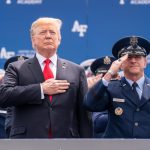In a recent statement from President Joe Biden, the White House has announced the details of a hostage exchange with Venezuela. The exchange, which includes the release of ten Americans, was touted as a triumph for the Biden administration. But what the statement failed to mention was the release of Alex Saab, a Colombian ally of Venezuelan dictator Nicolás Maduro and a notorious war profiteer.
Saab has been accused of stealing $350 million from starving Venezuelans and engaging in corrupt activities that have exacerbated the country’s ongoing food crisis. The Colombian national’s release as part of the exchange has raised significant concerns about the administration’s priorities and the implications for U.S. foreign policy in the region.
Saab's greatest victims were the Venezuelan people.
He got a contract from Maduro to build 25,000 low-income housing units, but instead pilfered hundreds of millions of dollars out to the US and charged 3-4x the price for each house.https://t.co/zzX6pJyneM
— Gabriel Noronha (@GLNoronha) December 20, 2023
The situation is made even more troubling by the fact that Saab was reportedly providing crucial information on Maduro’s illicit activities to the DEA. His cooperation with U.S. authorities in exposing the Venezuelan regime’s corruption made him a valuable asset in efforts to hold Maduro and his allies accountable.
While it is undoubtedly a relief that American citizens are being freed from captivity, the decision to include Saab in the exchange has drawn criticism for effectively rewarding a key figure in the Maduro regime’s kleptocracy network. Some voices have also expressed fear that the exchange sets a dangerous precedent, suggesting that Maduro may continue to take hostages and make demands in future negotiations.
Additionally, the prisoner swap has drawn comparisons to previous controversial exchanges made by the Biden administration, such as the release of Viktor Bout, a Russian arms dealer known as the “merchant of death,” in exchange for WNBA player Brittney Griner. These instances have raised questions about the administration’s approach to foreign policy and the trade-offs being made in pursuit of diplomatic wins.
Ultimately, the decision to include Saab in the exchange has sparked debate over the administration’s handling of U.S. interests and values in its dealings with authoritarian regimes like Maduro’s Venezuela. With Saab now free and potentially able to continue his illicit activities, the broader implications of the exchange are likely to remain a subject of scrutiny and concern.




